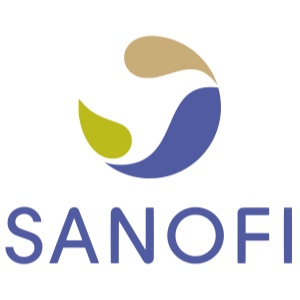NIHR and Sanofi Announce First Patient Enrolled in Large European Clinical Study to Investigate Protection Against RSV, the Leading Cause of Infant Hospitalisation Worldwide
The study has been developed as a collaboration between NIHR, investigators,
The first patient visit took place at
Dr
Primary Investigator, Honorary Assistant Professor at the
“The HARMONIE study will expand our understanding of how well a one-off injection protects babies from RSV. RSV is a major cause of death and illness in children across the world and it is the most common reason for admission to hospital in children aged under one year in the
Professor
National Specialty Lead for Infection at NIHR Clinical Research Network, said:
“This study, supported by the
“By carrying out this widespread study, we can help discover how babies can be protected from such a common, yet potentially debilitating virus.”
Dr Bogdana Coudsy
Global Head of Medical for Vaccines at
“Given RSV is a leading cause of hospitalisation in all infants, we are excited to start this research that put the needs of participants, carers, and investigators at the heart of its development. This is an innovative study in design and execution, a model for the future, thanks to a hybrid digital design and close collaborative work.”
RSV places a significant burden on families and health services
Globally, in 2015, there were approximately 30 million cases of acute lower respiratory infections. This led to more than 3 million hospitalisations, and it was estimated that there were 60,000 in-hospital deaths of children younger than 5 years.iii-iv In recent months, there has been a resurgence of RSV following the easing of COVID-19 public health measures.v-vi
A peer-reviewed RAND and
A survey of 1,500
Nirsevimab is being developed by
More information about the trial can be found at http://rsvharmoniestudy.com
ENDS
About HARMONIE
Hospitalised RSV Monoclonal Antibody Prevention (HARMONIE) is a phase 3b randomised open-label study of nirsevimab in preventing hospitalisations due to respiratory syncytial virus (RSV) in infants under 12 months.
This study will include newborn babies to babies 12 months old who are in, or are approaching, their first RSV season. It will last approximately 12 months.
HARMONIE is an open label interventional study which builds on successful results in phase 2b/3 trials of nirsevimab across all infants.x Regulatory submissions for nirsevimab are already underway.
HARMONIE has been designed and developed as a result of close collaboration between
For more information visit http://rsvharmoniestudy.com.
About Nirsevimab
Nirsevimab is an investigational long-acting antibody aiming to protect all infants from birth entering their first RSV season with a single dose.x,xi,xii
Nirsevimab is an immunisation designed to provide direct RSV protection to all infants via an antibody to help prevent LRTI caused by RSV.
In
Nirsevimab has been granted regulatory designations to facilitate expedited development by several regulatory agencies around the world. These include Breakthrough Therapy Designation by
About NIHR
The mission of the
- Funding high quality, timely research that benefits the
- Investing in world-class expertise, facilities and a skilled delivery workforce to translate discoveries into improved treatments and services;
- Partnering with patients, service users, carers and communities, improving the relevance, quality and impact of our research;
- Attracting, training and supporting the best researchers to tackle complex health and social care challenges;
- Collaborating with other public funders, charities and industry to help shape a cohesive and globally competitive research system;
- Funding applied global health research and training to meet the needs of the poorest people in low and middle income countries.
NIHR is funded by the
About
We are an innovative global healthcare company, driven by one purpose: we chase the miracles of science to improve people’s lives. Our team, across some 100 countries, is dedicated to transforming the practice of medicine by working to turn the impossible into the possible. We provide potentially life-changing treatment options and potentially life-saving vaccine protection to millions of people globally, while putting sustainability and social responsibility at the center of our ambitions.
References
i Verway,C, and Nunes, MC. RSV lower respiratory tract infection and lung health in the first 2 years of life.
ii Wennergren, G and Kristjånsson, S. Relationship between respiratory syncytial virus bronchiolitis and future obstructive airway diseases. Eur Respir J. 2001; 18:1044–1058 DOI: 10.1183/09031936.01.00254101
iii Shi T, et al. Global, regional, and national disease burden estimates of acute lower respiratory infections due to respiratory syncytial virus in young children in 2015: a systematic review and modelling study.
iv
v Ujiie M, Tsuzuki S, Nakamoto T, et al. Resurgence of Respiratory Syncytial Virus Infections during COVID-19 Pandemic,
vi
vii Fusco F, et al. The impact of respiratory syncytial virus on the
viii Zhang S, et al. Cost of Respiratory Syncytial Virus-Associated Acute Lower Respiratory Infection Management in Young Children at the Regional and Global Level: A Systematic Review and Meta-Analysis. J Infect Dis. 2020;222(Suppl 7):S680-687
ix Adelphi Research Survey Commissioned by
x Clinicaltrials.gov. A Study to Evaluate the Safety and Efficacy of MEDI8897 for the Prevention of Medically Attended RSV LRTI in Healthy Late Preterm and Term Infants (MELODY). https://clinicaltrials.gov/ct2/show/NCT03979313. Accessed
xiClinicaltrials.gov. A Study to Evaluate the Safety of MEDI8897 for the Prevention of Medically Attended Respiratory Syncytial Virus (RSV) Lower Respiratory Track Infection (LRTI) in High-risk Children. https://clinicaltrials.gov/ct2/show/NCT03959488. Accessed
xii Zhu Q, et al. A highly potent extended half-life antibody as a potential RSV vaccine surrogate for all infants. Sci Transl Med. 2017;9:pii: eaaj1928
View source version on businesswire.com: https://www.businesswire.com/news/home/20220812005196/en/
NIHR pressoffice@nihr.ac.uk
Source:







